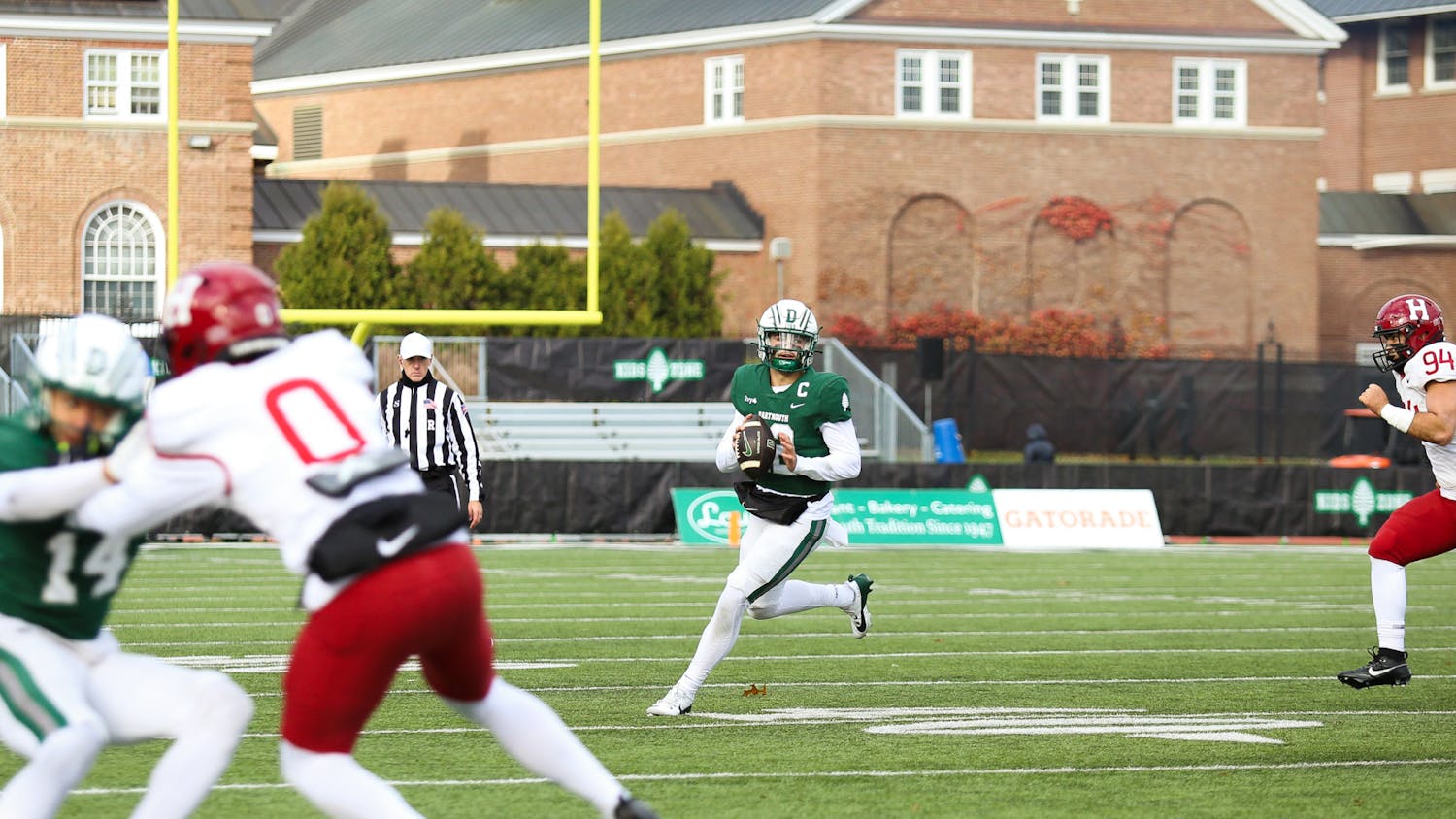In response to criticism from the Foundation for Individual Rights in Education, Dartmouth will update its Acceptable Use Policy for IT resources.
FIRE, an education nonprofit that defends individual rights at American universities, downgraded Dartmouth to a “red light rating” in Jan. 2018 because of its Acceptable Use Policy. According to the organization’s website, this title is reserved for universities with policies that “both clearly and substantially restrict protected speech.”
“We give policies that are clear restrictions on free speech a red light rating,” Laura Beltz, a senior program officer at FIRE, said.
“[The College’s policy] bans things like the posting or transmission of speech that is harmful, offensive and hateful,” she continued. “These are all very undefined terms that don’t have legal meaning and something that is offensive to one person could certainly not be offensive to another person.”
FIRE offered specific adjustments for updating the conduct policy.
“We recommend that they instead ban things like harassment and true threats because those types of terms have legal meanings and are not protected under first amendment standards,” Beltz said.
FIRE also recommended removing the term “abusive” from the Acceptable Use Policy because it is a vague term that could include speech protected by the first amendment. Currently, the policy, posted on both Information Technology Services’s website and the College’s undergraduate admissions blog, states users of the College’s IT resources may not post or spread content that is “harmful, offensive, obscene, abusive, invasive of privacy, defamatory, hateful or otherwise discriminatory, false and misleading, incites an illegal act, or is otherwise in breach of [users’] obligations to any person or contrary to any applicable laws and regulations.”
The College’s vice president and chief information officer Mitchel Davis said that the new policy will not include value oriented and subjective terms.
“This [new] policy is much more open,” Davis explained. “There’s room for interpretation as to where you were, what the environment was, and what you were trying to relay.”
He added that it is possible there will be a review board so that the College can determine if specific cases violate the policy.
“Before, with the other one, there was almost no discussion and it was dictated that if you did this you could be kicked off campus,” Davis added.
He also said that the new code will feature a “frequently asked questions” section to make the policy more clear to students.
“What I want to do is not only have a policy, but have a description of how that policy is implemented,” he explained.
Davis said that although the new policy is almost complete, it must be approved by a group of faculty and the administration before being published. At that point, he said he would like to get students involved.
“If the students want a chance to look it over prior to it being posted as a policy, I’ll have that meeting and we can sit down and go over the policy line by line,” Davis said. “Then we could avoid the posting of a policy that really has problems.”
Davis added that he was not surprised by the rating.
“I read it and I went, ‘Oh, this is just old. It hasn’t kept up with the world,’” he said.
Davis estimated that the current policy is at least 10 years old. He added that, in response to the rating, the College conducted research and hired legal counsel to develop a new policy.
“The [current] policy is old. It was written as a boiler plate,” Davis said. “You could’ve seen that same policy across the United States at most businesses and colleges.”
Davis addressed some of FIRE’s concerns specifically, saying that the new policy would not discuss hateful language.
“It will make FIRE happy, and I think that it will make the campus more open to discussing the topic of what is allowable on the network,” he said.
Daniel Bring ’21, vice president of Dartmouth College Republicans, said he is not convinced that the changes will properly defend free speech.
“I’m not super optimistic because it seems that they mostly wanted to change the language of the policy,” he said.
Bring added that the College’s description of the changes has been very vague.
“I would be more encouraged if they had said, ‘We will be undertaking an effort to seriously redesign and improve our acceptable use policy in order to allow more room for diversity of student opinion and expression,” Bring explained.
Davis also said that as the world changes the policy may need to be adjusted.
“Hopefully the policies that we have today will go under review at least once every two years so we can update them,” he said.
“The acceptable use policy should just be very clear that the College will not allow the transmission of any illegal content,” Bring said. “I would love to see, in the free speech policies of the College, First Amendment level protections.”
According to Davis, the new policy will likely be implemented before Nov. 15.
Wally Joe Cook is a freshman from Breezy Point, NY and a graduate of Regis High School. Wally Joe plans to major in Government and Economics at Dartmouth, and decided to join the D because of his interest in politics and journalism. Before joining the D, Wally Joe wrote for his high school newspaper and Politico. In his spare time, Wally Joe likes to ski and play Spikeball.



